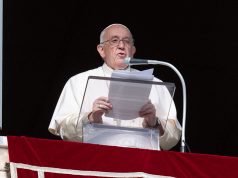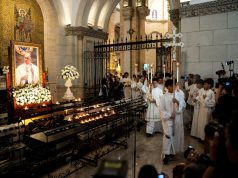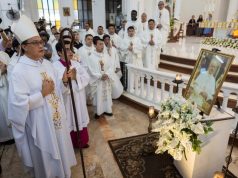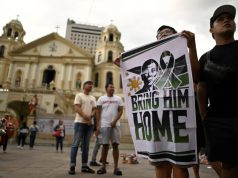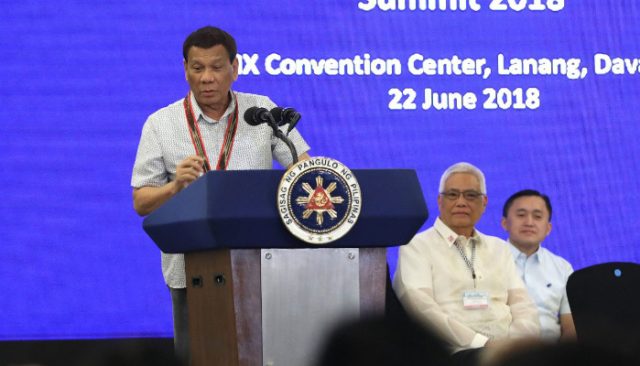
Rodrigo Duterte has insulted leaders, countries, causes and organizations, and most recently, believers of a key piece of Christian doctrine while slurring against God.
Duterte’s supporters would be quick to dismiss the president’s latest comments as an expression of a personal choice about is his own religiosity, having said that he does not believe in any organized religion.
Others also pointed out that Duterte once claimed to have been abused by a late priest, though there has been no evidence that he coincided with the accused.
What made the remarks alarming was they were made at a public forum behind the seal of the institution he occupies—the presidency—and apparently directed at the Catholic Church, the local leaders of which have upbraided his controversial policies such as his deadly drug war.
It was not, however, the first time President Duterte dropped very public criticisms against the Philippines’ religious majority.
‘Stupid’ slur not the first, nor the last
In Duterte’s recent speech, he criticized the creation story in the Bible and called God as “stupid” for setting off an event that would cause his work’s ruin.
“You created something perfect and then you think of an event that would tempt and destroy the quality of your work,” the chief executive said in a speech on June 22.
Unapologetic of this earlier statement, Duterte followed it up in questioning the origins of the Bible itself and mocked how artists represented the Last Supper in a famous painting.
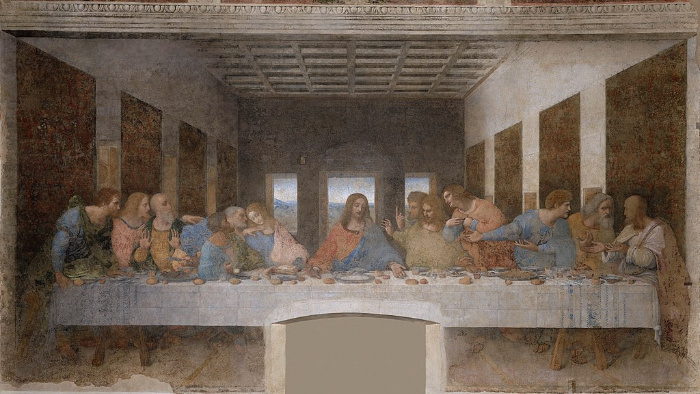
Before all this, the president played down the merit of the Adam and Eve biblical story during his three-day South Korea trip in June. The event set off another controversy altogether over his on-stage kiss with a Filipino female migrant worker on the lips.
In January 2017, Duterte hurled expletives at Catholic bishops and challenged them to resign if he had proven alleged scandals happening among the clergy. He did this while encouraging the crowd to read the book “Altars of Secrets” by late journalist Aries Rufo, believing the investigation exposing abuses in the church as anti-Catholic.
As his response to critics of death penalty, Duterte questioned the presence of God amid prevalent rape and killings here and abroad during a speech in September 2016.
Following his proclamation as a presidential aspirant in 2015, then Davao City mayor cussed Pope Francis, blaming him for heavy traffic during his visit to Manila in January that year. Duterte had since asked for forgiveness for the comment but insisted it was a joke.
In January 2018, Duterte did not hold back in mocking the Islamist ideology of members of the Islamic State, allies of whom laid siege on Marawi City that provoked a months-long battle with the military.
Duterte said he’d rather have the 72 virgins on earth supposedly promised to members of the terror cell in paradise after they die as martyrs.
The supposed “reward” may have been a mistranslation of the Quran and Hadith texts, both of which were originally written in Arabic.
He may not have qualms criticizing the church, but Duterte, being the first president hailing from the south with a large population of Muslims, had been keen on supporting the Bangsamoro Basic Law aiming to correct the historical injustice done to Muslim Moros, which he said had resulted in longstanding conflicts.
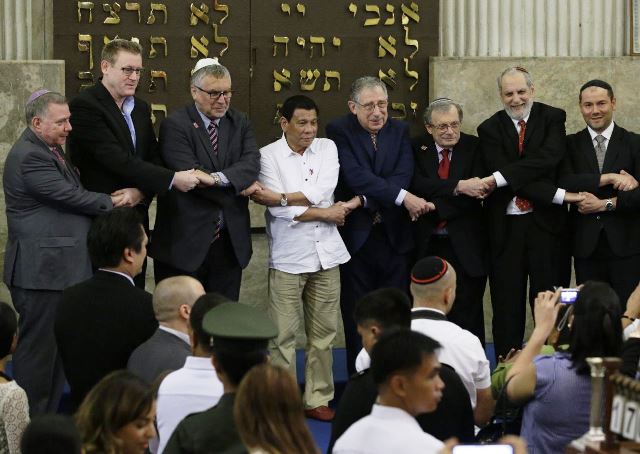
Though its local membership is not as large as Christianity and Islam, the Jewish community in the Philippines were deemed insulted when Duterte likened his drug war to get rid of supposed crooks to the Holocaust in 2016. He had since apologized for the remark, after it made international headlines and sparked widespread criticisms.
Why insulting a religion is a big deal
Disagreeing with Catholic dogma doesn’t give Duterte the “license to insult,” according to the Catholic Bishops’ Conference of the Philippines.
“The Catholics would respect him even if he does not agree with their Catholic faith. But it does not mean that just because he disagrees, he already has a license to insult,” Bishop Pablo Virgilio David said on Facebook.
According to a survey, 80 percent of Filipinos or roughly 84 million are Roman Catholic. Duterte, meanwhile, won by a wide margin in 2016, earning around 16 million votes.
A veteran journalist, writing for The Diplomat, observed that Duterte’s “stupid God” remark “wasn’t a smart idea in the Philippines.” Luke Hunt argued that Duterte’s anger and potty-mouthed insults are far from presidential. Moreover, he risked angering a still influential clergy and alienating segments of the population.
Meanwhile, ousted chief justice Maria Lourdes Sereno said that Duterte may have violated the Constitution for calling God “stupid,” causing a division among the Filipinos.
“There is a violation of the spirit of the preamble of the Constitution. But whether that is enough for action to be taken remains to be the question,” Sereno said.






